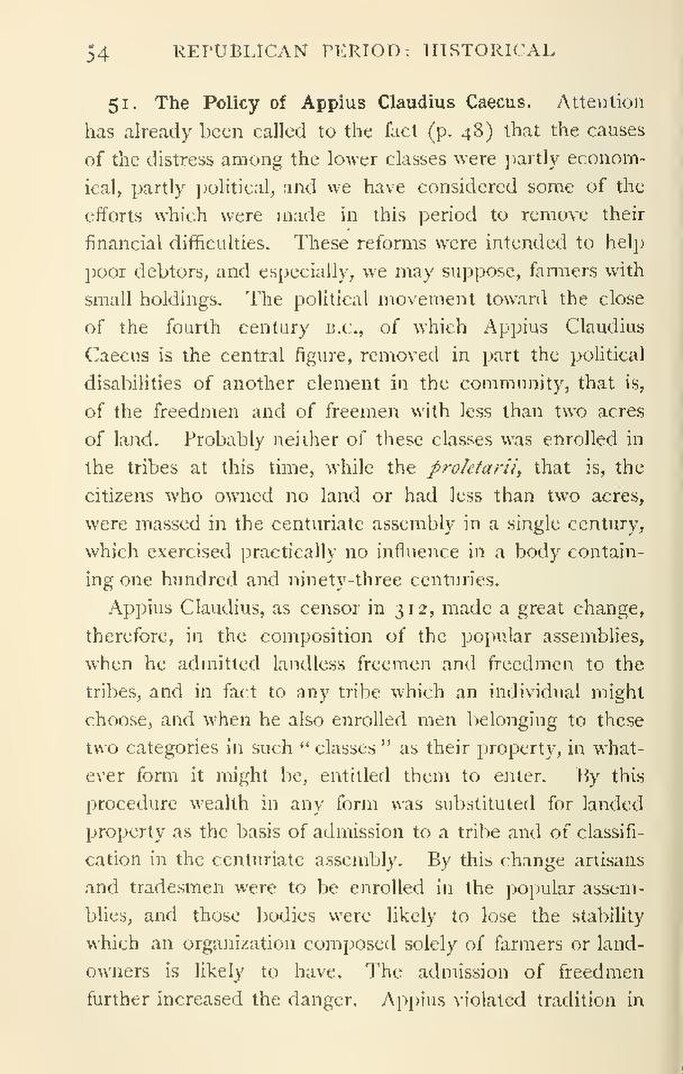51. The Policy of Appius Claudius Caecus. Attention has already been called to the fact (p. 48) that the causes of the distress among the lower classes were partly economical, partly political, and we have considered some of the efforts which were made in this period to remove their financial difficulties. These reforms were intended to help poor debtors, and especially, we may suppose, farmers with small holdings. The political movement toward the close of the fourth century B.C., of which Appius Claudius Caecus is the central figure, removed in part the political disabilities of another element in the community, that is, of the freedmen and of freemen with less than two acres of land. Probably neither of these classes was enrolled in the tribes at this time, while the proletarii, that is, the citizens who owned no land or had less than two acres, were massed in the centuriate assembly in a single century, which exercised practically no influence in a body containing one hundred and ninety-three centuries.
Appius Claudius, as censor in 312, made a great change, therefore, in the composition of the popular assemblies, when he admitted landless freemen and freedmen to the tribes, and in fact to any tribe which an individual might choose, and when he also enrolled men belonging to these two categories in such "classes" as their property, in whatever form it might be, entitled them to enter. By this procedure wealth in any form was substituted for landed property as the basis of admission to a tribe and of classification in the centuriate assembly. By this change artisans and tradesman were to be enrolled in the popular assemblies, and those bodies were likely to lose the stability which an organization composed solely of farmers or landowners is likely to have. The admission of freedmen further increased danger. Appius violated tradition in
